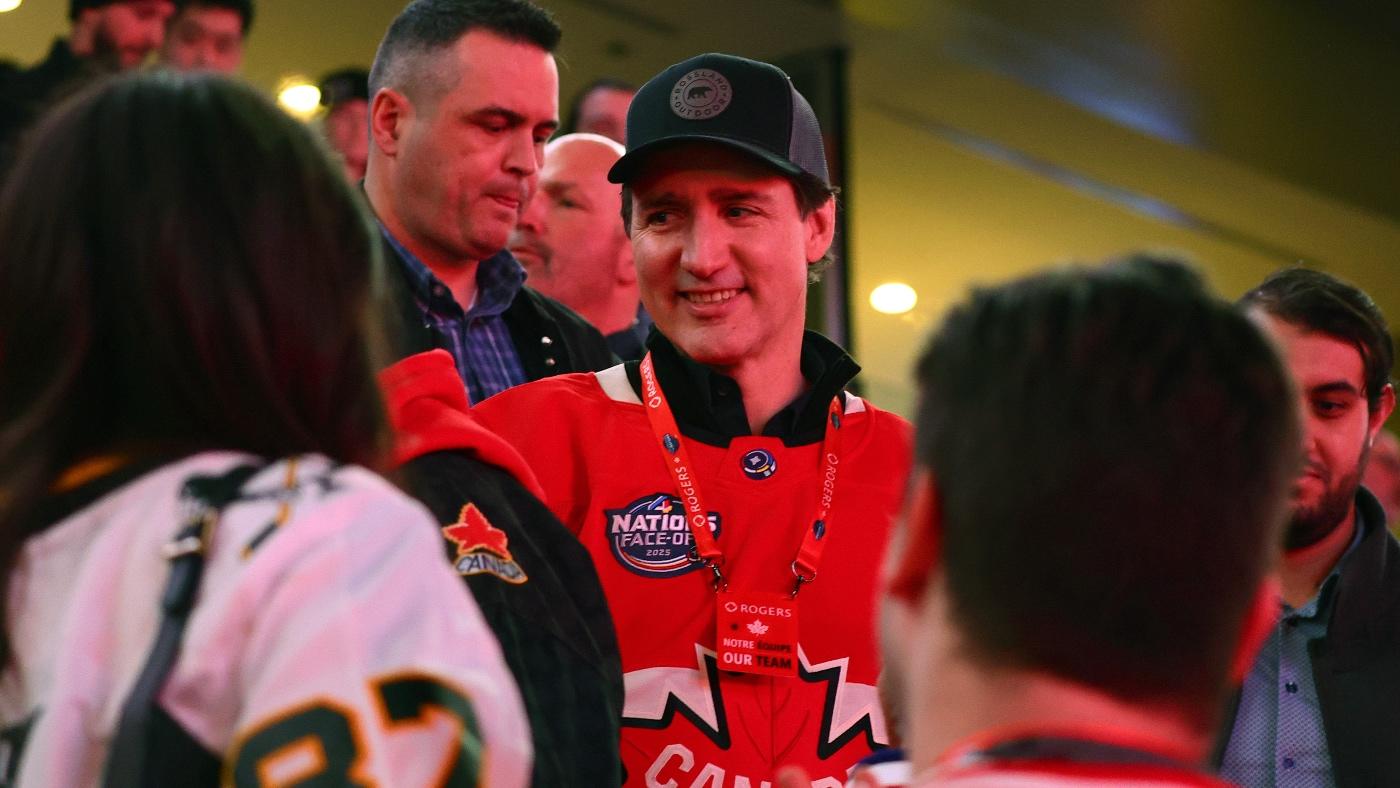

Prior to Canada’s 3-2 overtime victory over the United States in Thursday night’s 4 Nations Face-Off championship game, both national anthems were sung as has been part of tradition for hockey games. Canadian national anthem singer Chantal Kreviazuk apparently altered the lyrics to “O Canada” in a dig at President Donald Trump.
During Kreviazuk’s rendition of of the song, she subtly changed the line “in all of us command,” to “that only us command,” in protest of Trump’s comments on making Canada a part of the United States. She later posted her change to the lyrics on Instagram, making clear her stance on the aggressive way Trump has tried to implement tariffs on goods produced north of the border.
“During soundcheck I sang the wrong words ‘in all thy sons command’ out of habit and when I analyzed the new line, I thought wow — this could mean something so pertinent to our country in this moment with a change in just two words, three syllables,” Kreviazuk wrote. “I didn’t dream that such an effect would be had by deciding to go out there and do it. But it really felt like the right thing to do.
“Here is the thing. Art to me is an expression of our truth. the anthem is not a lawful document. It is an expression of the collective, and it changes from time to time when the moment demands it should. So yes. In this very peculiar and potentially consequential moment I truly believe that we must stand up, use our voices and try to protect ourselves… no — we should express our outrage in the face of any abuses of power. i was raised in part by music that was inspired by brave voices committed to peaceful conflict resolution.
“Canada, not unlike Ukraine is a sovereign nation. Period. We have a culture individual to others. We are united in our values. We care. We’re kind. We are strong.”

The political message contained within Kreviazuk’s change to the national anthem was also confirmed by her publicist, Adam Gonshor, to the Associated Press.
As Canadian officials have balked at comments made by Trump about annexing the country since assuming office in January, the national anthem of both the United States and Canada has become a battleground of sorts for tensions between the two nations. Canadian fans in Montreal booed “The Star Spangled Banner” when the teams first played last week, leading to some version of retaliation on Thursday as some fans booed “O Canada” in Boston.
Canada’s victory over the U.S. in Thursday night’s game became a natural opportunity for Canadian officials to take a shot at Trump and the U.S., with Prime Minister Justin Trudeau commenting “You can’t take our country — and you can’t take our game” in a post on X following Canada’s win.
Canadian National Anthem Singer Admits to Intentionally Altering Lyrics in Protest of President Donald Trump
In a bold and controversial move, a Canadian national anthem singer has admitted to intentionally altering the lyrics of “O Canada” in protest of President Donald Trump. The singer, who has not been identified, made the confession in a recent interview with a Canadian news outlet.
According to the singer, the decision to change the lyrics was a deliberate act of protest against what they see as the divisive and harmful policies of the Trump administration. The altered lyrics reportedly included references to issues such as immigration, climate change, and human rights.
The singer explained that they felt compelled to take a stand against President Trump’s actions and rhetoric, which they believe are damaging to both the United States and the world at large. By changing the lyrics of the national anthem, the singer hoped to draw attention to these important issues and spark a conversation about the need for change.
The alteration of the national anthem has sparked a heated debate in Canada, with some praising the singer for their bravery and activism, while others have criticized the move as disrespectful and unpatriotic. The Canadian government has not yet issued a statement on the matter.
Regardless of one’s opinion on the singer’s actions, it is clear that they have succeeded in drawing attention to important issues and sparking a conversation about the role of music and art in political protest. The incident serves as a reminder of the power of music to inspire change and challenge authority, even in the most unexpected of ways.

